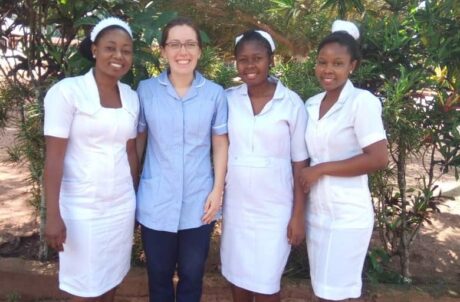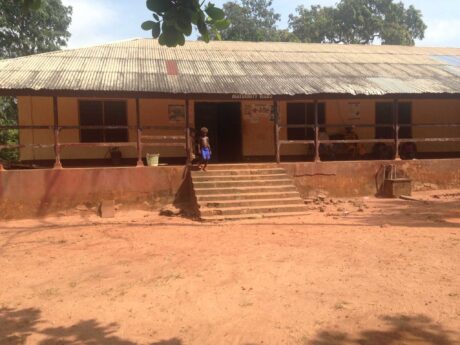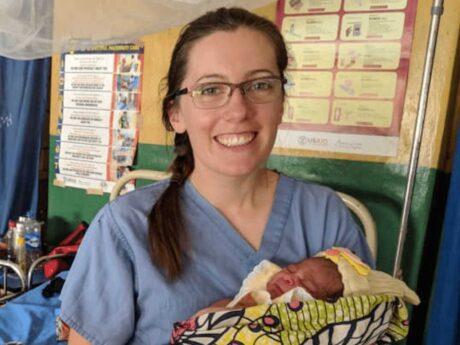Globally, Nigeria has one of the highest rates of maternal mortality, contributing to over 10% of maternal deaths each year. Despite public health campaigns, neonatal mortality rates also remain high. Accessible maternity services and measures such as antenatal clinics and immunisation programmes could help prevent this, yet for many women in Nigeria, maternity care is a privilege that they cannot afford. Less than half of women access maternity services during pregnancy or childbirth.

During my time at Holley Memorial Hospital, I encountered some of the challenges of providing midwifery care without many of the basic resources that we often take for granted in the UK. Due to the lack of antenatal care, many women arrived at the hospital with complications. Babies were often born requiring care that was difficult to provide without the expertise of a neonatal team. Whilst working on the maternity unit, I helped to care for a woman who was admitted in premature labour. She gave birth to twins ten weeks early, each weighing only 3lbs. Sadly, one twin was born with respiratory difficulties and died shortly after birth. Once we had stabilised the other twin, we had to manage her care as the family could not afford the costs of transferring her to another hospital. During this time, I was glad for the support and experience of one of the medical doctors as we responded to the challenges encountered.

Premature babies are particularly vulnerable. They often need additional care during the first weeks of life. At first, we were able to manage the challenges of prematurity, but after six days she began to develop signs of sepsis and had difficulty breathing. It soon became clear that she required more medication and specialist support than we could provide. We brought her small life before God in prayer knowing that we could do little more. As her condition continued to deteriorate over the following day, we prayed, wept and rejoiced over her short life together. While God did not answer our prayers in the way we had hoped for, I was reminded of His presence as the baby’s father declared “God is wonderful”. During this time, I became acutely aware of the privilege of training in a country where women and babies are not expected to die in childbirth. In many ways, this worldview was very distinct from my Nigerian colleagues who saw maternal and infant death as a normal part of life. While this attitude at first seemed to me uncaring, it reflected the emotional burden of working in an environment where patients often die due to a lack of resources.
It is hard to keep fighting when you fear you will fail others again. Yet in these moments I’ve learnt that we must continue to trust in God’s goodness and sovereignty.
It is difficult to reflect on such experiences without feeling an overwhelming sense of failure and frustration. As a Christian it can be difficult to see God’s goodness in situations when you have cried out for healing and the outcome remains poor. Some days the emotional burden of care feels too heavy and it is hard to keep fighting when you fear you will fail others again. Yet in these moments I’ve learnt that we must continue to trust in God’s goodness and sovereignty. He sees our struggles when we lack the resources or knowledge to be able to care for patients. He understands when we are tired, weak and overwhelmed by the weight of human suffering and injustice. During these times, we can come before Him with our struggles, knowing that He understands. Throughout the Gospels, we see Jesus’ great compassion for those who suffer as He cares for the sick, weeps with those who mourn and loves the rejected. While many were healed when they encountered Jesus, others were not. This reminds us that above all He came to bring salvation, forgiveness of sins and to provide a way for all people to come before a holy God.

As Christians working in healthcare, we are called to be like Jesus. We are called to love patients and care for them even when we cannot treat their ill health or resolve their problems. Our role is to use the skills God has given us and trust Him to be faithful. As I look back, I can now see how God’s love was demonstrated through the care we provided as we shared with the family in their joy and grief. Whilst we were unable to heal their daughter, we could pray with them and enable them to rest as we helped to provide for her physical needs. What I first perceived to be failure led me to seek God more in prayer, to be honest about my weakness and to point others to the One who knows the pain of human suffering but came to bring hope and salvation.